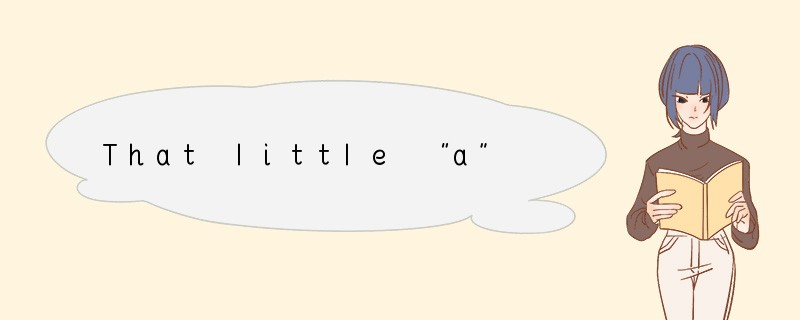That little “a” with a circle curling arou
时间:2024-04-24 22:50:59 栏目:学习方法
题目内容:
That little “a” with a circle curling around it that is found in E – mail addresses is most commonly referred to as the “at” symbol.
Surprisingly though, there is no official, universal name for this sign. There are dozens of strange terms to describe the "@" symbol.
Before it became the standard symbol for electronic mail, the "@" symbol was used to represent the cost of something or how heavy something is. For instance, if you purchased 6 apples, you might write it as 6 apples "@" $1.10 each.
With the introduction of e-mail came the popularity of the "@" symbol. The "@" symbol or the "at sign" separates a person's online user name from his mail server(服务器) address. For instance, joe@uselessknowledge.com. Its widespread use on the Internet made it necessary to put this symbol on keyboards in other countries that have never seen or used the symbol before. As a result, there is really no official name for this symbol.
The actual origin of the symbol remains a mystery. History tells us that the @ symbol came from the tired hands of the Middle Ages. During the Middle Ages before the invention of printing machines, every letter of a word had to be copied with great efforts by hand for each copy of a published book. The monks that performed these long, boring copying duties looked for ways to reduce the number of individual strokes (笔画) per word for common words. Although the word “at” is quite short to begin with, it was a common enough word in text and documents so that those monks thought it would be quicker and easier to shorten the word “at” even more. As a result, the monks changed the shape of “t” into a circle to surround “a”, thus leaving out two strokes in the spelling “t”.
45.Which of the following is the best title of the passage?
A.How “at” developed into @.
B.How @ came into being.
C.How monks invented @.
D.How people wrote the cost of something.
46.Who knows the origin of @?
A.Nobody
B.Monks
C.Apple buyers
D.Internet users
47.Which is NOT the reason for the monks to spell “at” as @?
A.Though “at” is short, it was used very often.
B.The monks wanted to be quicker and easier with their copying.
C.The monks wanted to invent a new word.
D.Copying work was long and boring for them.
48.According to the paragraph , which is TRUE about the symbol of @ today?
A.When you are online, you must use the @ symbol.
B.Kittly 163.com@is an email address.
C.In countries where @ is used, governments have given it an official name.
D.It is likely to find the @ symbol on computer keyboards worldwide.
最佳答案:
小题1:B
小题2:A
小题3:C
小题4:D
答案解析:
略
考点核心:
人物传记类文章的文体特征:
人物传记是记叙文体的一种,主要描写某人的生平事迹、趣闻轶事、生活背景、个性特征、成长奋斗历程等,包含记叙文的时间、地点、人物、事件等要素。其特点是以时间的先后或事件的发展为主线,空间或逻辑线索贯穿文章始终,脉络清楚,可读性较强。
版权声明:
1、本文系转载,版权归原作者所有,旨在传递信息,不代表看本站的观点和立场。
2、本站仅提供信息发布平台,不承担相关法律责任。
3、若侵犯您的版权或隐私,请联系本站管理员删除。
4、本文由会员转载自互联网,如果您是文章原创作者,请联系本站注明您的版权信息。

 订阅
订阅